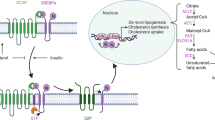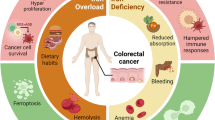Abstract
Background
Vitamin K2 has been reported to suppress the growth of human hepatocellular carcinoma (HCC) in vitro and hepatocarcinogenesis in hepatitis C virus (HCV)-related cirrhosis in vivo. Hepatoma-derived growth factor (HDGF) is a unique nuclear targeting growth factor that is highly expressed in HCC cells and is a possible prognostic factor for patients with HCC. We investigated the regulation of HDGF expression by vitamin K2.
Methods
Three HCC-derived cell lines, HepG2, HuH-7, and SK-Hep-1, were used. Cell number was determined with the MTT assay. The expression levels of HDGF mRNA and protein were measured by the real-time reverse transcriptase-polymerase chain reaction (PCR) method and ELISA and Western blot analysis, respectively. The HDGF promoter activity was measured by a dual luciferase-reporter assay.
Results
Vitamin K2 suppressed the growth of the three HCC cell lines in a dose-dependent manner. Vitamin K2 significantly suppressed the expression of the HDGF protein and mRNA in three cell lines. By a luciferase assay, vitamin K2 significantly suppressed the promoter activity of the HDGF protein. Based on some luciferase-reporter plasmids containing truncated promoter regions, the possible responsive site of vitamin K2 seems to reside in the region −1 to −150 bp of the HDGF gene.
Conclusions
These findings suggested that regulation of the HDGF gene expression is one of the crucial mechanisms of vitamin K2-induced cell growth suppression for HCC.
Similar content being viewed by others
References
Nakamura H, Kambe H, Egawa T, Kimura Y, Ito H, Hayashi E, et al. Partial purification and characterization of hepatomaderived growth factor. Clin Chim Acta 1989;183:273–284.
Nakamura H, Izumoto Y, Kambe H, Kuroda T, Mori T, Kawamura K, et al. Molecular cloning of complementary DNA for a novel human hepatoma-derived growth factor. J Biol Chem 1994;269: 25143–25149.
Kishima Y, Yamamoto H, Izumoto Y, Yoshida K, Enomoto H, Yamamoto M, et al. Hepatoma-derived growth factor stimulates cell growth after translocation to the nucleus by nuclear localization signals. J Biol Chem 2002;277:10315–10322.
Everett AD, Stoops T, McNamara CA. Nuclear targeting is required for hepatoma-derived growth factor-stimulated mitogenesis in vascular smooth muscle cells. J Biol Chem 2001;276: 37564–37568.
Okuda Y, Nakamura H, Yoshida K, Enomoto H, Uyama H, Hirotani T, et al. Hepatoma-derived growth factor induces tumorigenesis in vivo through both direct angiogenic activity and induction of vascular endothelial growth factor. Cancer Sci 2003;94:1034–1041.
Everett AD, Narron JV, Stoops T, Nakamura H, Tucker A. Hepatoma-derived growth factor is a pulmonary endothelial cellexpressed angiogenic factor. Am J Physiol Lung Cell Mol Physiol 2004;286:L1194–L1201.
Oliver JA, Al-Awqati Q. An endothelial growth factor involved in rat renal development. J Clin Invest 1998;102:1208–1219.
Enomoto H, Yoshida K, Kishima Y, Kinoshita T, Yamamoto M, Everett AD, et al. Hepatoma-derived growth factor is highly expressed in developing liver and promotes fetal hepatocyte proliferation. Hepatology 2002;36:1519–1527.
Everett AD, Lobe DR, Matsumura ME, Nakamura H, McNamara CA. Hepatoma-derived growth factor stimulates smooth muscle cell growth and is expressed in vascular development. J Clin Invest 2000;105:567–575.
Yoshida K, Nakamura H, Okuda Y, Enomoto H, Kishima Y, Uyama H, et al. Expression of hepatoma-derived growth factor in hepatocarcinogenesis. J Gastroenterol Hepatol 2003;18:1293–1301.
Huang JS, Chao CC, Su TL, Yeh SH, Chen DS, Chen CT, et al. Diverse cellular transformation capability of overexpressed genes in human hepatocellular carcinoma. Biochem Biophys Res Commun 2004;315:950–958.
Iwasaki T, Nakagawa K, Nakamura H, Takada T, Matsui K, Kawahara K. Hepatoma-derived growth factor as a prognostic marker in completely resected non-small-cell lung cancer. Oncol Rep 2005;13:1075–1080.
Uyama H, Tomita Y, Nakamura H, Nakamori S, Zhang B, Hoshida Y, et al. Hepatoma-derived growth factor is a novel prognostic factor for patients with pancreatic cancer. Clin Cancer Res 2006;12:6043–6048.
Zhang J, Ren H, Yuan P, Lang W, Zhang L, Mao L. Downregulation of hepatoma-derived growth factor inhibits anchorageindependent growth and invasion of non-small cell lung cancer cells. Cancer Res 2006;66:18–23.
Yamamoto S, Tomita Y, Hoshida Y, Takiguchi S, Fujiwara Y, Yasuda T, et al. Expression of hepatoma-derived growth factor is correlated with lymph node metastasis and prognosis of gastric carcinoma. Clin Cancer Res 2006;12:117–122.
Yamamoto S, Tomita Y, Hoshida Y, Morii E, Yasuda T, Doki Y, et al. Expression level of hepatoma-derived growth factor correlates with tumor recurrence of esophageal carcinoma. Ann Surg Oncol 2007;14:2141–2149.
Kishima Y, Yoshida K, Enomoto H, Yamamoto M, Kuroda T, Okuda Y, et al. Antisense oligonucleotides of hepatoma-derived growth factor (HDGF) suppress the proliferation of hepatoma cells. Hepatogastroenterology 2002;49:1639–1644.
Yoshida K, Tomita T, Okuda Y, Yamamoto S, Enomoto H, Uyama H, et al. Hepatoma-derived growth factor is a novel prognostic factor for hepatocellular carcinoma. Ann Surg Oncol 2006;13:159–167.
Hu TH, Huang CC, Liu LF, Lin SY, Chang HW, Changchien CS, et al. Expression of hepatoma-derived growth factor in hepatocellular carcinoma. Cancer (Phila) 2003;98:1444–1456.
Chlebowski RT, Akman SA, Block JB. Vitamin K in the treatment of cancer. Cancer Treat Rev 1985;12(1):49–63.
Wang Z, Wang M, Finn F, Carr BI. The growth inhibitory effects of vitamins K and their actions on gene expression. Hepatology 1995;22:876–882.
Hitomi M, Nonomura T, Yokoyama F, Yoshiji H, Ogawa M, Nakai S, et al. In vitro and in vivo antitumor effects of vitamin K5 on hepatocellular carcinoma. Int J Oncol 2005;26:1337–1344.
Hitomi M, Yokoyama F, Kita Y, Nonomura T, Masaki T, Yoshiji H, et al. Antitumor effects of vitamins K1, K2 and K3 on hepatocellular carcinoma in vitro and in vivo. Int J Oncol 2005;26:713–720.
Habu D, Shiomi S, Tamori A, Takeda T, Tanaka T, Kubo S, et al. Role of vitamin K2 in the development of hepatocellular carcinoma in women with viral cirrhosis of the liver. JAMA 2004; 292:358–361.
Mizuta T, Ozaki I, Eguchi Y, Yasutake T, Kawazoe S, Fujimoto K, et al. The effect of menatetrenone, a vitamin K2 analog, on disease recurrence and survival in patients with hepatocellular carcinoma after curative treatment: a pilot study. Cancer (Phila) 2006;106:867–872.
Markovits J, Wang Z, Carr BI, Sun TP, Mintz P, Le Bret M, et al. Differential effects of two growth inhibitory K vitamin analogs on cell cycle regulating proteins in human hepatoma cells. Life Sci 2003;72:2769–2784.
Otsuka M, Kato N, Shao RX, Hoshida Y, Ijichi H, Koike Y, et al. Vitamin K2 inhibits the growth and invasiveness of hepatocellular carcinoma cells via protein kinase A activation. Hepatology 2004;40:243–251.
Liu W, Nakamura H, Yamamoto T, Ikeda N, Saito M, Ohno M, et al. Vitamin K2 inhibits the proliferation of HepG2 cells by upregulating the transcription of p21 gene. Hepatol Res 2007;37: 360–365.
Ozaki I, Zhang H, Mizuta T, Ide Y, Eguchi Y, Yasutake T, et al. Menatetrenone, a vitamin K2 analogue, inhibits hepatocellular carcinoma cell growth by suppressing cyclin D1 expression through inhibition of nuclear factor kappaB activation. Clin Cancer Res 2007;13:2236–2245.
Kanamori T, Shimizu M, Okuno M, Matsushima-Nishiwaki R, Tsurumi H, Kojima S, et al. Synergistic growth inhibition by acyclic retinoid and vitamin K2 in human hepatocellular carcinoma cells. Cancer Sci 2007;98:431–437.
Shao RX, Otsuka M, Kato N, Taniguchi H, Hoshida Y, Moriyama M, et al. Acyclic retinoid inhibits human hepatoma cell growth by suppressing fibroblast growth factor-mediated signaling pathways. Gastroenterology 2005;128:228–231.
Ren H, Tang X, Lee JJ, Feng L, Everett AD, Hong WK, et al. Expression of hepatoma-derived growth factor is a strong prognostic predictor for patients with early-stage non-small cell lung cancer. J Clin Oncol 2004;22:3230–3237.
Author information
Authors and Affiliations
Rights and permissions
About this article
Cite this article
Yamamoto, T., Nakamura, H., Liu, W. et al. Involvement of hepatoma-derived growth factor in the growth inhibition of hepatocellular carcinoma cells by vitamin K2 . J Gastroenterol 44, 228–235 (2009). https://doi.org/10.1007/s00535-008-2304-4
Received:
Accepted:
Published:
Issue Date:
DOI: https://doi.org/10.1007/s00535-008-2304-4




